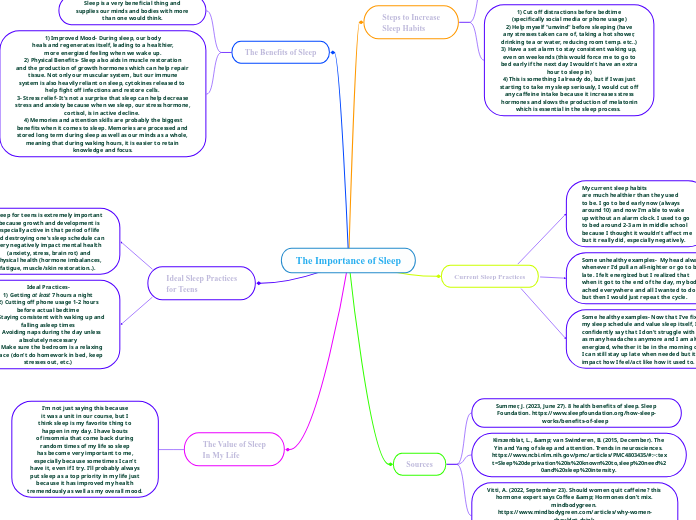by Olivia McClone 1 year ago
122
The Importance of Sleep
Sleep is crucial, especially for teenagers, as it supports growth, development, and overall well-being. Teens should aim for at least seven hours of sleep per night, limit phone usage before bed, maintain consistent sleep schedules, avoid daytime naps unless necessary, and create a relaxing bedroom environment.









